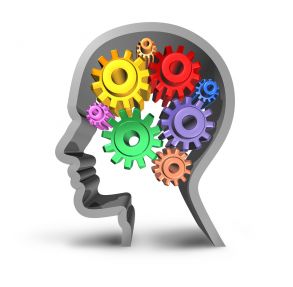Physical Exercise and the Aging Brain
"There is solid evidence to suggest that maintaining a regular exercise regimen can improve brain health."
"Each of these sessions [in an exercise program] gives you points that you rack up, and when we get to about 52 hours, then . . . we have this opportunity to reap the benefits of the exercise."
"You can think of it as exercise turning back the clock of age in your brain. We live in an era of instant gratification . . . but the encouraging thing about this is that it emphasizes the idea that you shouldn't be discouraged if you don't feel something in the first month. You just have to keep going."
"We are still learning about all the ways in which exercise changes our brain, and we are also all different, so identifying an ideal exercise dose remains a challenge. We have many more questions about exercise dose, and we will design further studies to follow up."
"We need to discuss this as a society because the global population is aging. By 2035, the scale is going to tip, and older adults [ages 65 and up] will be more plentiful than younger adults."
Joyce Gomes-Osman, post-doctoral research scholar, Beth Israel Deaconess Medical Center
"It's very encouraging that the evidence supports all sorts of different exercise interventions, not just aerobic, to improve thinking abilities. "
"The most stable improvements in thinking abilities were found in processing speed, both in healthy older adults and individuals with mild cognitive impairment."
Alvaro Pascual-Leone, Chief of the Division of Cognitive Neurology, Director, Berenson-Allen Center for Noninvasive Brain Stimulation, Beth Israel Deaconess Medical Center
 |
|
The
researchers discovered that participants began experiencing cognitive
improvements after working out for a total of 52 hours in approximately
six months. Mario Tama/Getty Images/File
|
In a joint study undertaken by researchers both at Harvard Medical School and Beth Israel it was found that any type of exercise, including walking, cycling, resistance training, yoga, weightlifting and so on is capable of having the astounding effect of improving cognitive and thinking skills in older people. Over 11,000 adults in their 70s were recruited to participate in the review, and its findings were published just recently in the journal Neurology Clinical Practise.
The researchers involved are convinced that even simply going out for a vigorous walk will help the elderly maintain their cognitive function. Lead author of the study, Joyce Gomes-Osman, has expressed her hope that the study findings will impress a significant number of people to encourage them that beginning an exercise plan and sticking to it, is not all that difficult, and the rewards make it well worth while for the effort.
After working out for a total of 52 hours within a six month period, study participants exhibited clear cognitive improvements, although researchers were quick to point out that noticeable benefits will vary from person to person, as well as the period of time it takes with a dedicated exercise program to begin experiencing those positively uplifting cognitive-improvement rewards. Though the benefits accruing from an exercise regimen accumulate over the long term, patience is required.
An attempt to accelerate the process would not necessarily turn out to be beneficial since it was determined that more intense exercise sessions of a shorter duration don't make the grade; in comparison to a steady exercise routine undertaken over a longer committal period. Aging while remaining mentally alert is a topic concerning greater numbers of people as peoples' longevity and expectations of remaining both physically and mentally alert consumes the public interest.
As we age, scientists have affirmed, our central nervous system slows down the production of new cells in our brain's hippocampus, affecting thinking and problem-solving. Still, according to researchers, regular commitment to endurance exercise is capable of stimulating the production of a protein called brain-derived neurotrophic factor, identified in a 2016 Harvard Medical School study.
That protein, over time "helps new neurons survive and thrive", noted Dr. Gomes-Osman. "Sometimes it's hard to translate these studies to people's lives, but I think we took a real important step in creating advice to translate results of evidence of exercise and brain health to a practical application that's applicable to everybody."
Labels: Aging, Bioscience, Brain, Exercise


0 Comments:
Post a Comment
<< Home